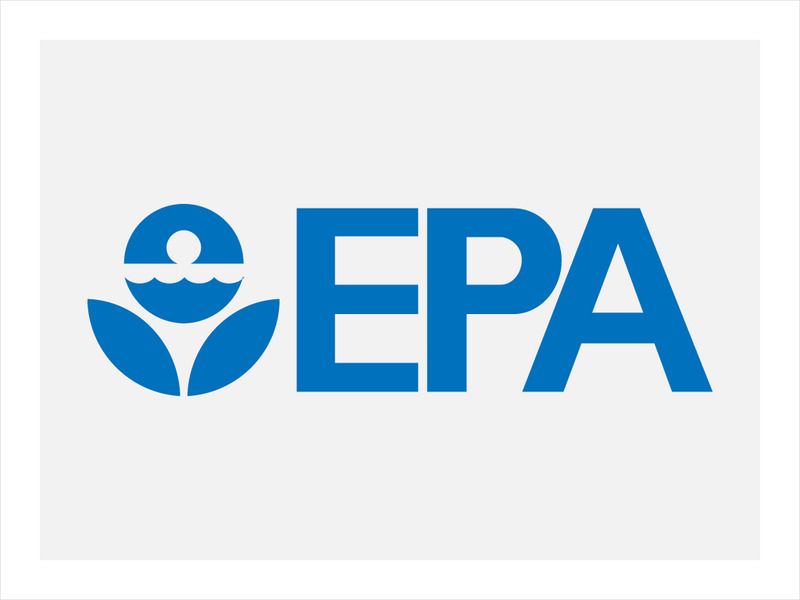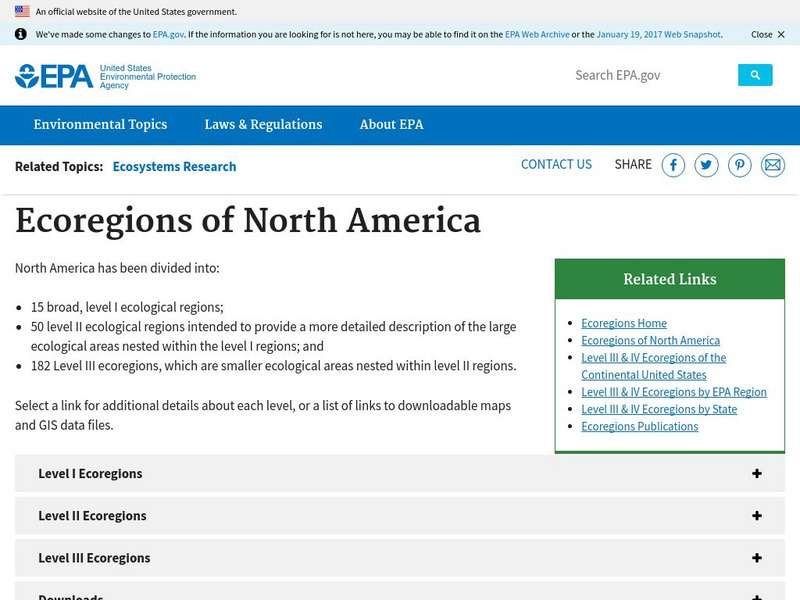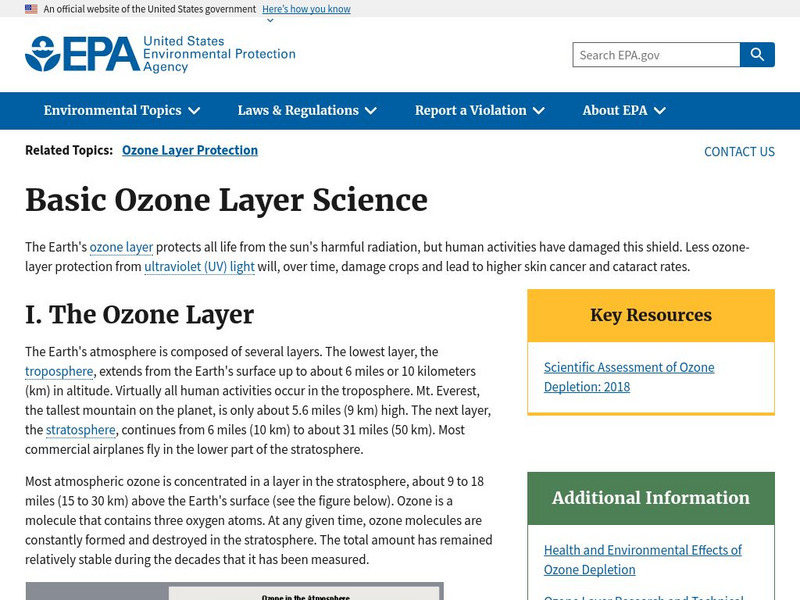US Environmental Protection Agency
Epa: Student Guide: Greenhouse Effect
Learn the science behind the greenhouse effect.
US Environmental Protection Agency
Epa: Global Warming Wheel Card [Pdf]
Students construct a Global Warming Wheel Card, a hand-held tool that they can use to estimate their household's emissions of carbon dioxide and learn how they can reduce them.
US Environmental Protection Agency
Epa: Smelting Lead Containing Waste
Describes a process by which waste lead can be reclaimed from materials such as batteries.
US Environmental Protection Agency
Epa: Asbestos
Discusses the different types of risks imposed when exposed to asbestos. Risks that are discussed are cancer risks, reproductive effects, and chronic effects.
US Environmental Protection Agency
Epa: Surf Your Watershed
This resource provides information on watersheds, maps, activities, and links to local watershed information.
US Environmental Protection Agency
Epa: 25 Years of the Safe Drinking Water Act: History and Trends
A resource from the Environmental Protection Agency that discusses the 25 years of progress, how the Safe Drinking Water Act has protected our health, standards for tap water, and the public's right to know.
US Environmental Protection Agency
Epa: Air Quality in My City
How does the air quality in my city compare with other cities? What time of year has the best air quality? Has the air quality in my city improved? AirCompare provides local air quality information to help you make informed,...
US Environmental Protection Agency
Epa: Ecological Regions of North America
A helpful map of North America which color codes its 15 ecological regions. Click on the different regions for a brief description of the area.
US Environmental Protection Agency
Epa: Carbon Monoxide (Co)
This page gives the sources of carbon monoxide along with health effects and recommendations for CO levels in homes.
US Environmental Protection Agency
Epa: Natural Disasters: Drought
A look at some real-world issues as well as the scientific research and technology used to support the EPA's mission to protect human health and safeguard the natural environment.
US Environmental Protection Agency
Epa: Endangered Species: Save Our Species Information Shortnose Sturgeon
Find out about the Alabama Sturgeon, a freshwater fish common in the Mobile basin.
US Environmental Protection Agency
Epa: Learn the Issues: Tornados
Find out about some real-world issues as well as the scientific research and technology used to support the EPA's mission to protect human health and safeguard the natural environment.
US Environmental Protection Agency
Epa: Natural Disasters: Volcanoes
Read this EPA resource about what to do if you are in immediate danger from a volcanic eruption.
US Environmental Protection Agency
Epa: Natural Disasters: Earthquakes
Information on this page will help students understand environmental dangers related to earthquakes, what they can do to prepare and recover.
US Environmental Protection Agency
Epa: Natural Disasters: Hurricanes
See some real-world issues as well as the scientific research and technology used to support the EPA's mission to protect human health and safeguard the natural environment.
US Environmental Protection Agency
Epa: Basic Ozone Layer Science
This site from the U.S. Environmental Protection Agency provides general information about ozone damage.
US Environmental Protection Agency
Epa: Natural Disasters: Wildfires
Find out about real-world issues as well as the scientific research and technology used to support the EPA's mission to protect human health and safeguard the natural environment.
US Environmental Protection Agency
Epa: Summary of the Clean Water Act
Provides a brief overview of the Clean Water Act. Includes links to its history and to information about compliance and enforcement.
US Environmental Protection Agency
Epa: Assessing Health Risks From Pesticides
This site provides information about the active ingredients registered as pesticides. Site discusses toxicology, exposure, dose-response and risk characterization.
US Environmental Protection Agency
Epa: Asthma and Indoor Environments
This website defines, explains, and exemplifies indoor air pollution and how it significantly contributes to asthma problems.
US Environmental Protection Agency
Epa: Air Trends
Each year EPA tracks the levels of pollutants in the air and how much of each pollutant (or the pollutants that form them) is emitted from various pollution sources. The Agency looks at these numbers year after year to see how the...
US Environmental Protection Agency
Epa: Learn the Issues: Chemicals & Toxics
This site provides real-world issues as well as the scientific research and technology used to support the EPA's mission to protect human health and safeguard the natural environment.
US Environmental Protection Agency
Epa: Mobile Source Air Toxics
Links to fact sheets, articles, and educational tools on air pollution.
US Environmental Protection Agency
Epa: Water: Environmental Topics: Water Topics
Find out how EPA research supports efforts under the Clean Water Act and Safe Drinking Water Act.



![Epa: Global Warming Wheel Card [Pdf] Activity Epa: Global Warming Wheel Card [Pdf] Activity](https://content.lessonplanet.com/knovation/original/84558-16fbabe6543bc08a2c6e61c7cc193c00.jpg?1661812588)





















